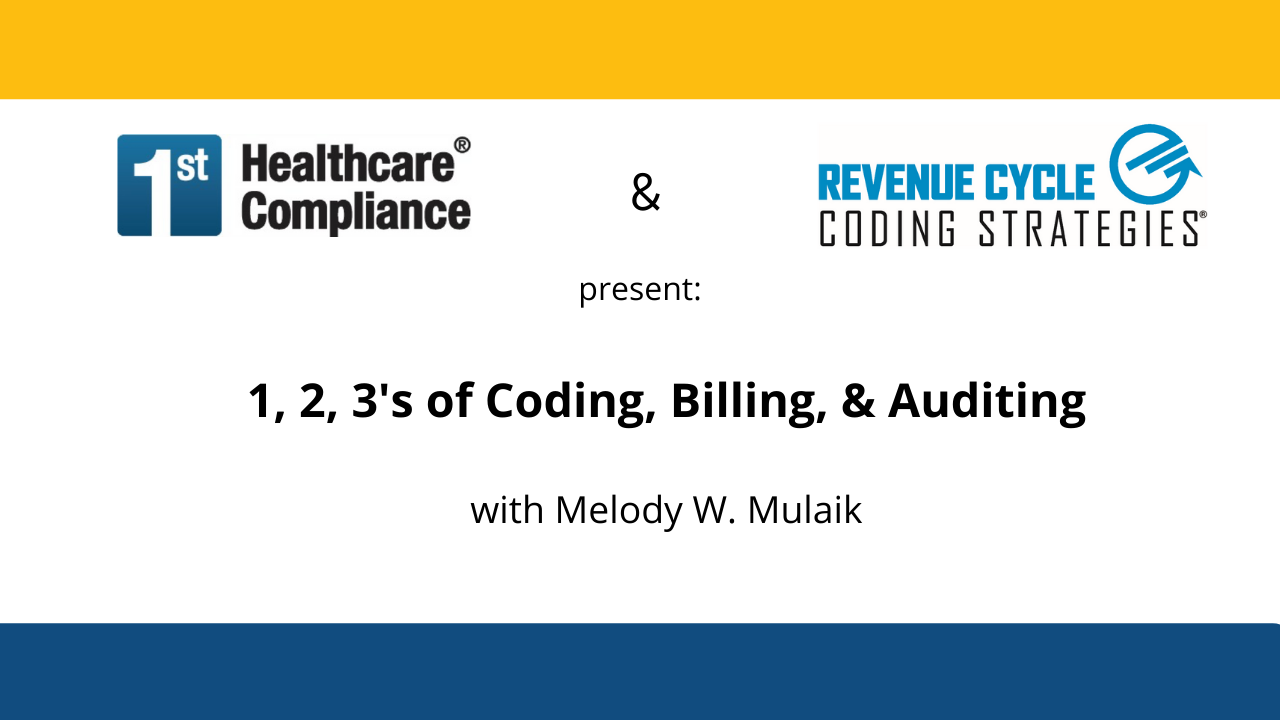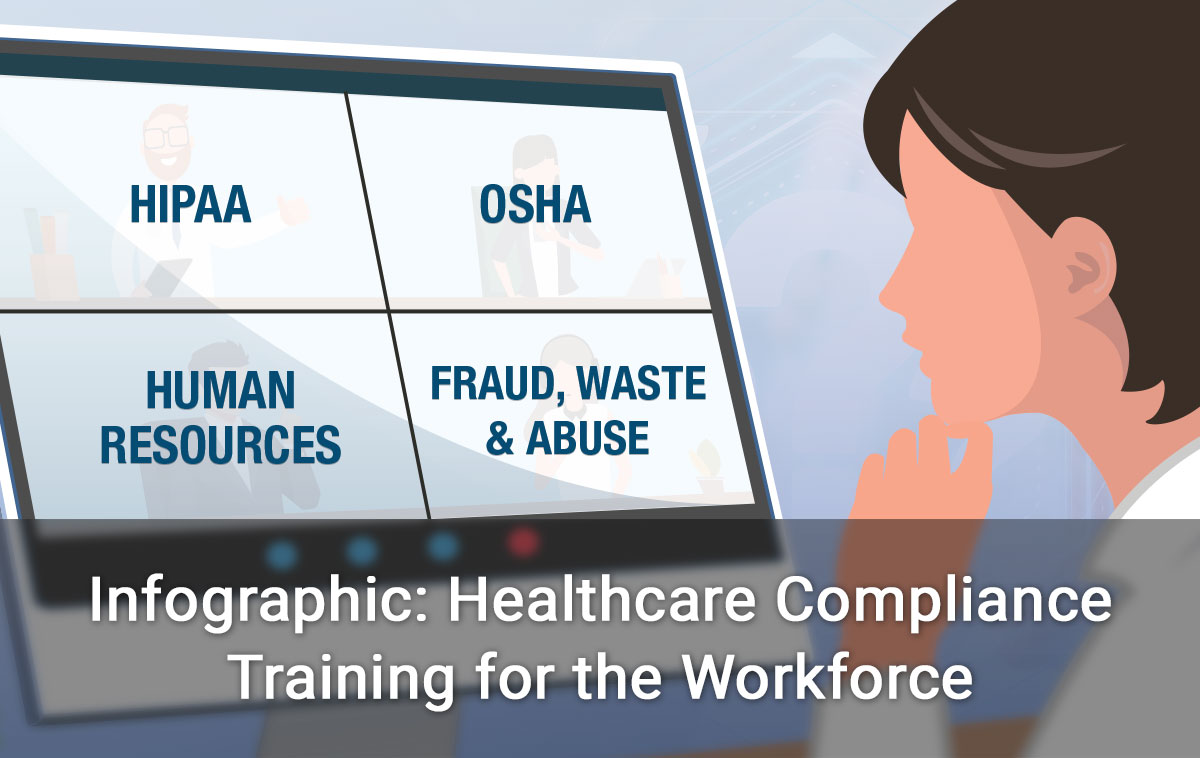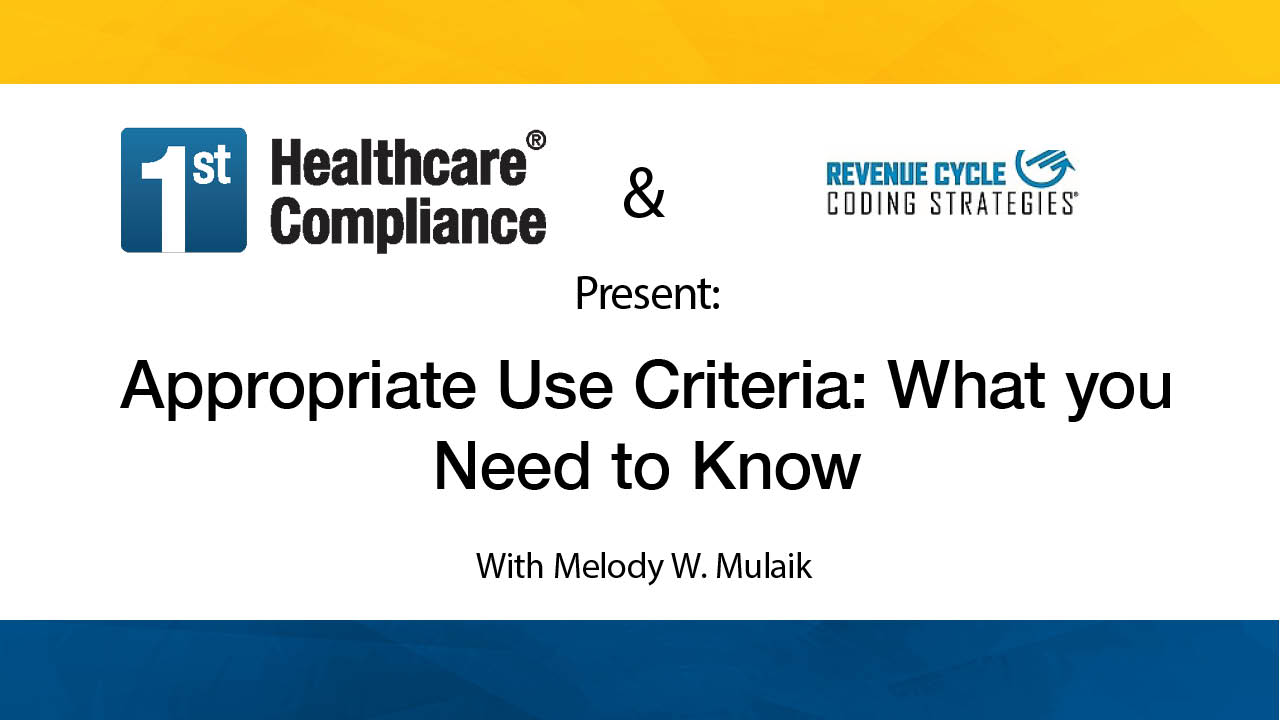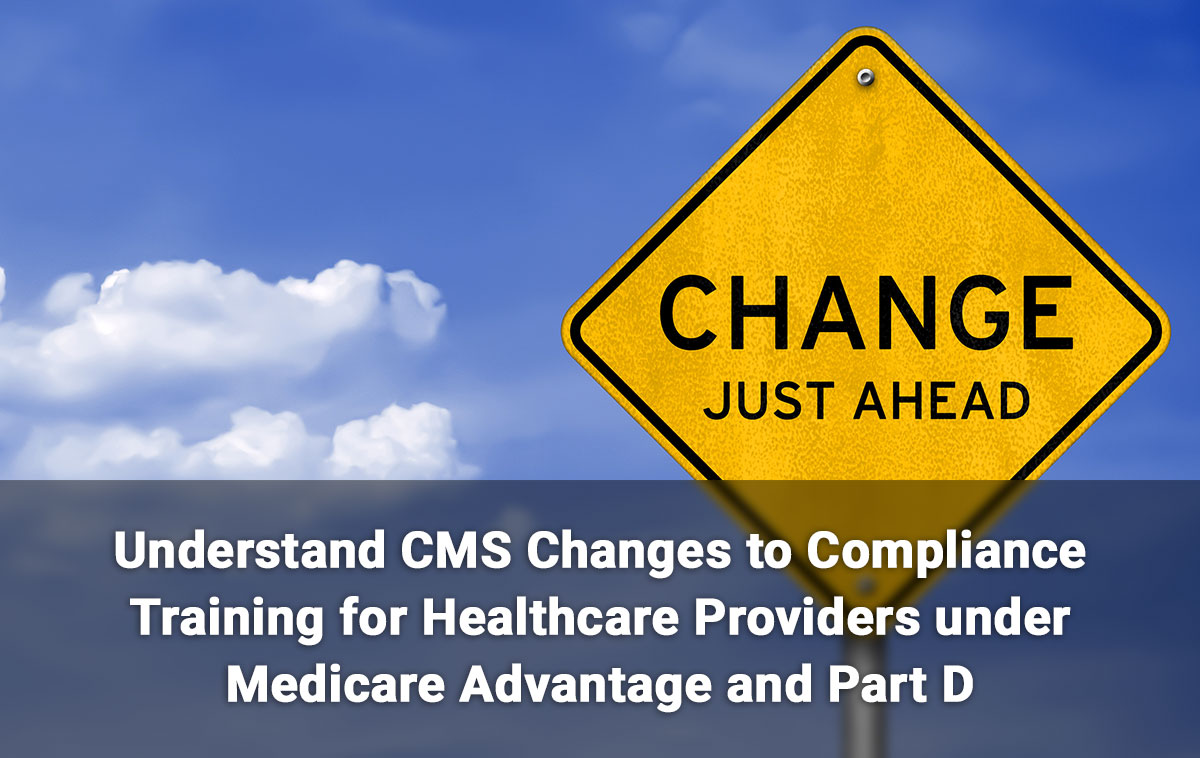
1, 2, 3’s of Coding, Billing & Auditing
Melody W. Mulaik, MSHS, FAHRA, CRA, RCC, RCC-IR, CPC, CPC-H is the President of Revenue Cycle Coding Strategies LLC and our presenter. Every organization needs to ensure correct coding and billing practices to optimize appropriate reimbursement and adhere to payer and CMS guidelines. This session will break down the key areas of concern and provide realistic solutions to efficiently and effective validate current processes and identify areas of potential concern.

Infographic: Healthcare Compliance Training for the Workforce
Successful employee education is an integral part of a comprehensive healthcare compliance program. Compliance professionals must consider which topics should be offered to the workforce. Of course, proper training depends on variables such as type of healthcare organization, roles of employees and location of the entity. States may impose specific requirements that go beyond federal requirements. Generally, four broad categories cover the topics imperative to the start of a comprehensive healthcare compliance program.

Appropriate Use Criteria: What you Need to Know
https://youtu.be/Of_Q-3RAOyE
Melody W. Mulaik, MSHS, FAHRA,…

Understand CMS Changes to Compliance Training for Healthcare Providers under Medicare Advantage and Part D
Establishing and maintaining a well-designed compliance program is key to preventing, detecting, and mitigating noncompliance. The seven elements of an effective compliance program outlined in the Federal Sentencing Guidelines, sets the framework but there are additional requirements that need to be integrated into the compliance program in order to be effective.
